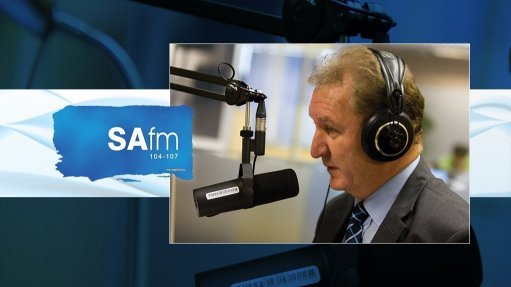Mounting pressure on household finances
Higher inflation and higher interest rates are leading to significant pressure on the finances of households, with the latest quarterly Altron FinTech Household Resilience Index (AFHRI) showing a 1.1% year-on-year decline during the fourth quarter of 2022.
The index, which reached a record high in the fourth quarter of 2021 after a strong recovery from the effects of the Covid-19 pandemic, revealed that, compared on a quarterly basis against the third quarter of 2022, household financial resilience increased by 1.4% during the quarter under review.
“Although the index increased marginally from its reading in the third quarter of 2022, it declined by more than 1% compared with the fourth quarter of 2021,” says Altron FinTech commissioned economist and Optimum Investment Group economic adviser Dr Roelof Botha.
“In the fourth quarter of 2022, the AFHRI recorded a value of 111.5, compared with 109.9 in the third quarter of the same year, and 112.7 in the comparable quarter of 2021.
“Given the 2014 base level of 100, this means that the average household’s financial disposition has improved by 11.5% in real terms over nine years. However, the average yearly improvement since 2014 is only 1.2%, which serves as a clear indication of the economy’s underperformance,” he explains.
This, he says, can be attributable to a decade of State capture and public sector mismanagement between 2009 and 2018 that eroded business confidence and ultimately led to serious infrastructure deficiencies, especially in the areas of energy, roads and railways; Covid-19 lockdown regulations, which decimated economic activity in 2020 and led to the loss of more than two-million jobs in the space of a single quarter; higher inflation, mainly owing to massive increases in freight shipping rates and global supply-side constraints; and an unwelcome return to restrictive monetary policy by the South African Reserve Bank (SARB), despite the absence of demand inflation.
The cost of credit and of capital has increased by more than 60% since the SARB started to raise interest rates at the end of 2021.
“It should be noted that employment and labour remuneration in the public and private sectors enjoy a relatively high weighting in the AFHRI, as these indicators represent the mainstay of the financial disposition of most households,” says Botha.
Other findings in the report include a further increase in employment in both the private and public sectors, which represents one of the major reasons for the relative stability in the financial resilience of households.
“The upward trend in new job creation continued in the fourth quarter of 2022, with almost 1.4-million new jobs having been created in 2022. Unfortunately, this positive effect was diminished by lower levels of remuneration,” the index outlines.
In real terms, the average monthly remuneration in South Africa has declined by 11.4% over the past year, from R18 470 in the fourth quarter of 2021 to R16 370 in the fourth quarter of 2022. At the end of 2022, the average monthly salary in the formal non-agricultural sectors was almost 60% higher at R26 000.
Further, while household financial resilience was boosted by a substantial increase in surrenders of long-term insurance policies, this trend is not conducive to future financial stability and is a clear sign of the hardship faced by many households as a result of higher inflation, higher interest rates and a low-growth economic environment.
The index also found that the reciprocals of civil debt defaults and credit impairments by banks have made a positive contribution to the AFHRI, confirming the inherent stability of South Africa’s banking system and the prudent management of debt by households in general. To a large extent, the latter has been necessitated by the sharp decline in the ratio of household income to debt costs.
Another conclusion by the index is that an indictment of the SARB’s interest rate policy is the fact that total household credit extension has not remotely recovered from the effects of the extremely high real interest rates that existed before the pandemic and remains well below the level of a decade ago in real terms.
Botha notes that since 1998, the total value of outstanding mortgage advances has declined by more than 10% in real terms.
“The South African economy has never been able to grow at sustainably high rates in the absence of meaningful growth in private sector credit extension. To the extent that unjustified hawkish monetary policy reduces output growth, fiscal stability will also be threatened. Inflation targets are not cast in concrete and the SARB should consider a temporary adjustment from between 3% and 6% to between 4% and 7%.”
This would immediately allow for a 100 basis point reduction in the repo rate and serve to breathe some life into a stagnant economy, he concludes.
Comments
Press Office
Announcements
What's On
Subscribe to improve your user experience...
Option 1 (equivalent of R125 a month):
Receive a weekly copy of Creamer Media's Engineering News & Mining Weekly magazine
(print copy for those in South Africa and e-magazine for those outside of South Africa)
Receive daily email newsletters
Access to full search results
Access archive of magazine back copies
Access to Projects in Progress
Access to ONE Research Report of your choice in PDF format
Option 2 (equivalent of R375 a month):
All benefits from Option 1
PLUS
Access to Creamer Media's Research Channel Africa for ALL Research Reports, in PDF format, on various industrial and mining sectors
including Electricity; Water; Energy Transition; Hydrogen; Roads, Rail and Ports; Coal; Gold; Platinum; Battery Metals; etc.
Already a subscriber?
Forgotten your password?
Receive weekly copy of Creamer Media's Engineering News & Mining Weekly magazine (print copy for those in South Africa and e-magazine for those outside of South Africa)
➕
Recieve daily email newsletters
➕
Access to full search results
➕
Access archive of magazine back copies
➕
Access to Projects in Progress
➕
Access to ONE Research Report of your choice in PDF format
RESEARCH CHANNEL AFRICA
R4500 (equivalent of R375 a month)
SUBSCRIBEAll benefits from Option 1
➕
Access to Creamer Media's Research Channel Africa for ALL Research Reports on various industrial and mining sectors, in PDF format, including on:
Electricity
➕
Water
➕
Energy Transition
➕
Hydrogen
➕
Roads, Rail and Ports
➕
Coal
➕
Gold
➕
Platinum
➕
Battery Metals
➕
etc.
Receive all benefits from Option 1 or Option 2 delivered to numerous people at your company
➕
Multiple User names and Passwords for simultaneous log-ins
➕
Intranet integration access to all in your organisation


















